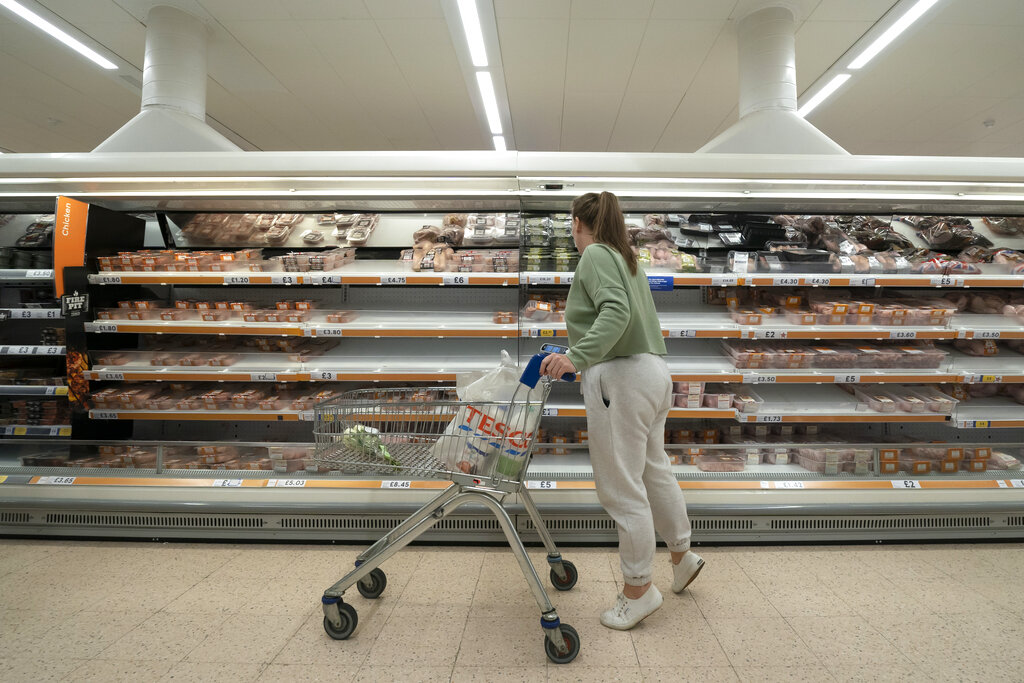Inflation in the United Kingdom has hit double digits for the first time since February 1982, with rising food and drink prices being the largest contributor to the cost of living hike between June and July, the country’s Office for National Statistics (ONS) revealed on Wednesday.
The announcement on Wednesday exceeded the expectations of economists, whose general consensus predicted a rise up to 9.8 percent, reported by the Financial Times.
Staples such as bread, cereals, milk, cheese, and eggs have all seen price rises in recent weeks, adding to the cost of living crisis already enveloping Europe due to the energy crisis and the ongoing conflict in Ukraine.
Bread and cereals are now up by 12.4 percent in a year, while dairy items such as milk, cheese, and eggs have soared by an annual 19.4 percent.
Overall inflation increased by more than 2 percent between June and July, the highest month-to-month hike in 20 years
Kien Tan, director of retail strategy at PwC, said “supermarkets have had little choice but to pass on price increases from suppliers, themselves contending with unprecedented inflation in raw material and ingredient input costs.”
Wages have less purchasing power than a year prior with the average wage now capable of buying 3 percent fewer goods and services, and the Institute of Fiscal Studies (IFS), which uses different calculations to the ONS, believes the poorest households could suffer an inflationary rise of 18 percent, because a larger proportion of their wages are spent on energy and food.
IFS Director Paul Johnson warned that “if the Bank of England is right and inflation hits 13 percent in October, then poorer households will experience inflation of c.18 percent. That’s because they spend such a large fraction of their budgets on energy and food, prices of which are rising so fast.”
Supermarkets such as Iceland have, in light of inflation hikes, announced they will offer an interest-free loan scheme to its customers struggling to afford their weekly shopping.
Richard Walker, the managing director of the supermarket chain told Sky News: “These are affordable microloans that are very time-limited and small amounts — anything from £25 up to £75.”
The cost of living crisis isn’t showing any signs of slowing down, with the Bank of England predicting that inflation won’t return to under its target of 2 percent for approximately two years.






